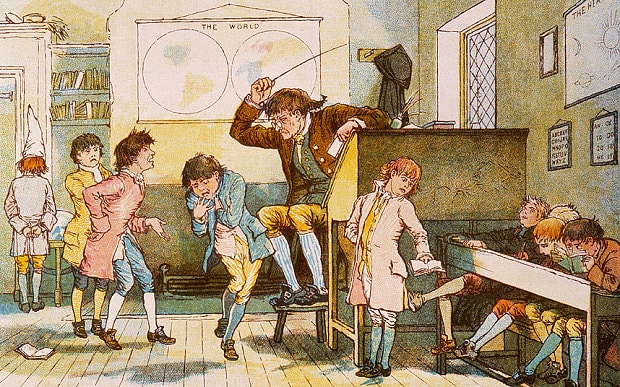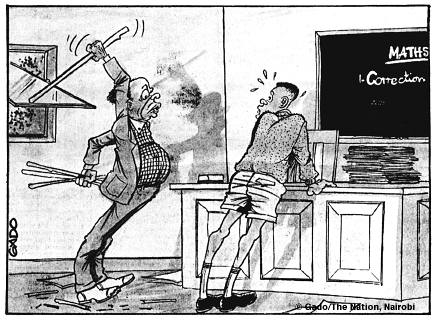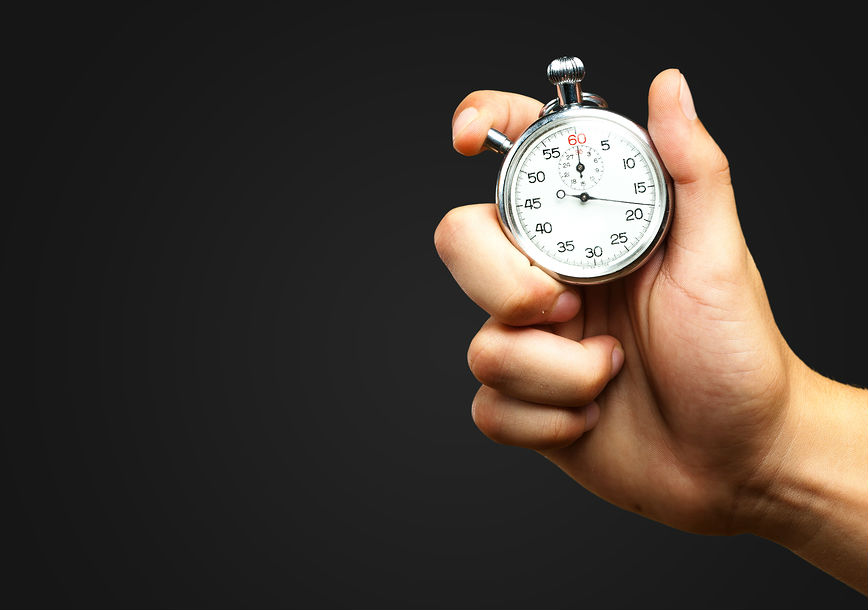I grew up at a time in my country where corporal punishment in schools was not only a thing, but was part of the system of best practices for child rearing. We were often subjected to harsh punishments of caning, a smack here and there, or protracted periods of kneeling. Don’t get me wrong, despite how horrible all this sounds, our teachers never did this just to get their jollies off. Whenever punishment was doled out, it was often well deserved. From tardiness to not doing one’s homework, almost all offenses warranted swift and – depending on the teacher in question – severe punishment. I understood why they did it. Quite frankly after hearing my own mother’s stories about how she and those in her age group would be punished for the same petty offenses, I wondered why our teachers weren’t all the more vicious.

For most of us, there was really no recourse to the daily floggings in school. Our teachers never did this unprovoked and our parents knew it. So on the off chance that some crybaby went home to report said teacher for a flogging meted on them, they were liable to get a second dose from their own parent, and possibly a third dose from the teacher under the watchful eye of their parent just for wasting both adults’ time. Sounds downright cruel, does it not? And most of us thought the exact same thing. As we came of age, we all swore we would all have our children’s backs, as it were, against the mean ol’ teacher. But long before any of us had any need or chance to do this, corporal punishment was abolished and outlawed. Educators were encouraged to find other ways to “reeducate” wayward pupils. Legends of rogue teachers still cracking a stick over some student’s poor buttocks still abound, but it is very much the exception not the rule.

Needless to say this was great news to all of us. Our children would spared the cruelty we endured under these so-called educators. In our adulthood however, we had forgotten one key aspect. We were all rotten children who constantly tried our teachers by pushing the bounds of their patience and sanity. We were all in government schools that were overcrowded, with teachers expected to corral large numbers of students at any given time. Our teachers were overworked, underpaid, and constantly disrespected. This is a trend that hasn’t abated. In the US for instance, certain states are hemorrhaging teachers from state-run schools at such an alarming rate that they are turning to recruiting agencies to provide affected schools with mostly Filipino teachers.
And while some of us are still quite sore about our childhood floggings, we might need to also own up to the fact that we weren’t innocent, and neither are our children. Much like ourselves, they are handfuls to manage. We are often quick to jump to our kids’ defense but what if we took a moment to think from the teacher’s perspective? What might we discover about ourselves and our children?
Grades Aren’t Everything But…

Even though schools back home are quite competitive, they have nothing on schools here in China. The push for excellence from a very early age means that kids are ran rugged by demanding parents. It is very easy to fall into this trap with your kid. Don’t get me wrong: aiming for excellent grades is perfectly fine. But elementary grades will not factor much in whether or not your kid will make it into Harvard. On the other hand, there are those kids who have the ability to achieve excellent grades but simply choose not to. Sometimes it is not so much a case of the system working against your child as it is that your child isn’t applying themselves as best as they could. The trick is being able to spot the difference.
Parent First, Best Friend Second
A lot of us growing up thought of how wonderful it would be to have our moms and dads be more like our older siblings, or better yet, our friends. Though it is great to have an open and honest relationship with your child, encouraging communication and sharing, it might be pushing it slightly if you also burden your child with your problems as you would your best friend. Boundaries have to be set. So does an understanding of action and consequence. For instance, if your child fails to do something required by the school, do not make excuses for them. He is not your buddy Steve with whom you have a pact to call pretending to be the doctor when you don’t show up to work for the tenth consecutive day. Your child might not learn to respect adults and authority if they pick up cues from you that it is okay to flaunt rules if it works to your advantage.
It’s Their Homework. Don’t Complain About It
/too_Much_homework-56a945d65f9b58b7d0f9d683.jpg)
I hated homework growing up. I didn’t understand the point of it. Plot twist: it was to prepare me for instances when I would work from home. At times the role of homework is not to exercise your child’s mental faculties, but to inculcate a sense of responsibility in them. It encourages the child to do what is expected of them, something that will follow them throughout their lives as adults and employees. Often times parents feel the need to complain about the difficulty or the easiness of their children’s homework. And at times they are tempted to help. To a trained eye however, it is very obvious when it is the parent not the teacher who has done the homework. Yes, Karen! It’s very unlikely that your child, no matter however gifted, will use the word concomitant to describe anything in their uncomplicated pre-corporate lives.
Kids Can Be Handfuls and Sometimes They Lie
This might sound like a massive indictment by some parents of their children. But take a moment and think of the number of times your homework was “eaten by the dog” or some fantastical event or other prevented you from getting to school on time. It is a parent’s natural reaction is to defend their child in the face of an accusation of lying (though I must say, while growing up, my mother’s automatic reaction was to always take the teacher’s side), it is important to remember that kids, just like adults, are out to preserve their hides. So if it suits them, your little angel might tell a little off-white lie or two. In the same breath, just because your child is an absolute joy at home, doesn’t mean that they are the way in school. Your child might be the classroom equivalent of a hurricane, causing unimaginable disruptions. Should the teacher raise this concern with you, it will serve no one to argue the merits of your child’s case, but rather partner with the teacher to best figure out a solution to the problem.
Teachers Have Families and Lives Too

Just like you, teachers have families and lives of their own. A life doesn’t always have to involve children of their own. Or even a spouse. Much like you, when a teacher steps out of the school compound, they’re off duty, meaning they might not be available to help your child with their homework over the phone, or able to respond to emails or texts sent after hours. And in the same way you appreciate your private time not being encroached upon by work demands, your child’s teacher would appreciate the same courtesy.
Photos: educationcentral.co.nz, ricemedia.co, corpun.com, gradepowerlearning.com,The Morning Call ,ThoughtCo, Good Housekeeping, Test Environment




